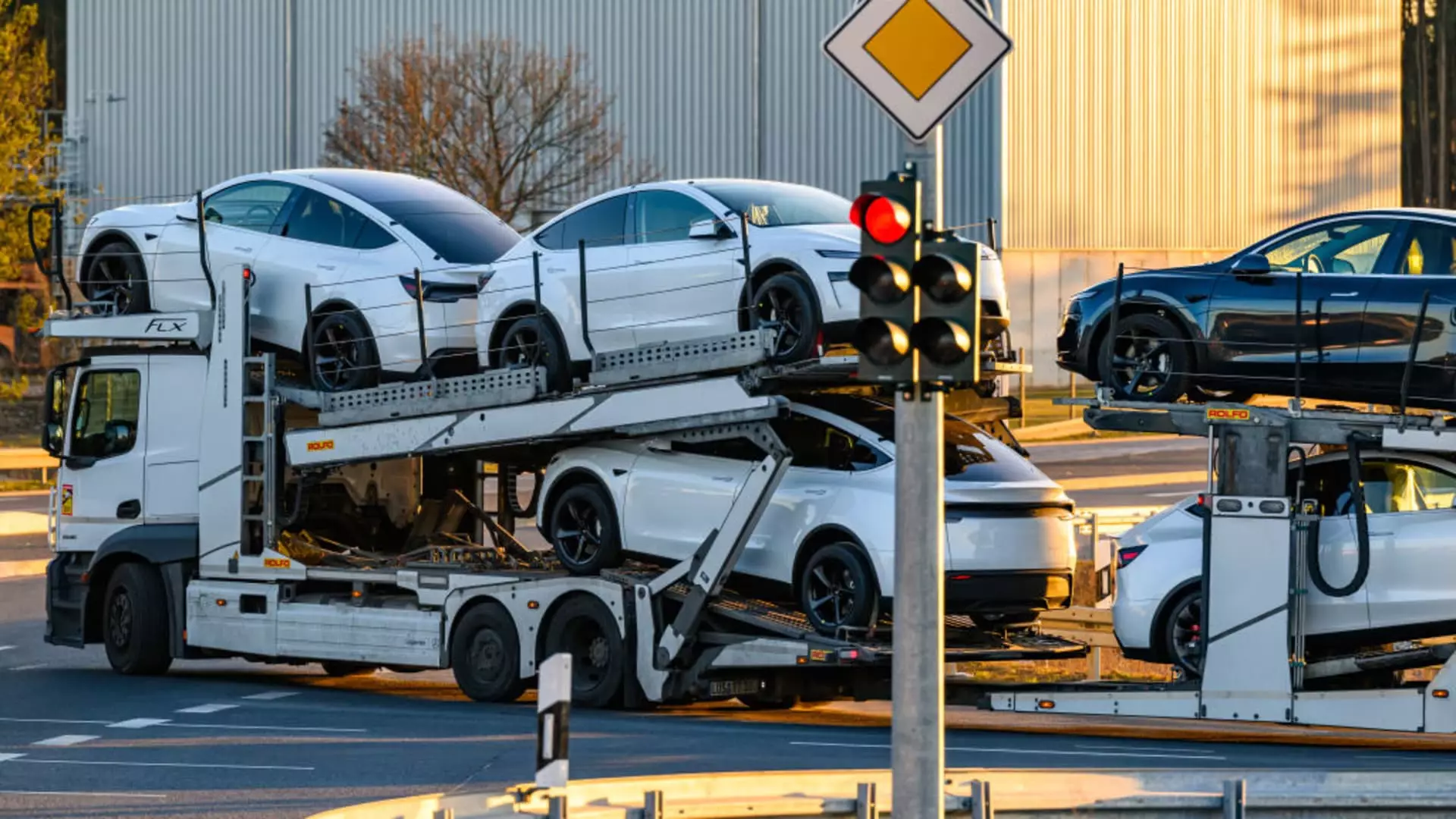Tesla recently revealed its first-quarter results for 2025, reporting just 336,681 vehicle deliveries— a staggering 13% decrease compared to the previous year. This announcement came on the heels of a dismal stock performance that marked the company’s worst quarterly results since 2022. Investors had anticipated figures between 360,000 and 370,000 vehicles; thus, the actual numbers fell short, raising alarms among analysts and stakeholders alike. These delivery statistics pose a serious question: Is Tesla losing its edge in an increasingly competitive EV market?
Despite producing 362,615 vehicles in the first quarter, these figures indicate a troubling deviation from expectations set by both Wall Street and Tesla’s previous performance. A glance at the investor sentiment paints a picture of frustration and disappointment, highlighting a loss of confidence in not only the company’s growth trajectory but also in Elon Musk’s leadership.
The Implications of Poor Delivery Numbers
The impact of these delivery statistics reverberates beyond mere numbers. Identifying as one of Musk’s staunchest supporters, Wedbush analyst Dan Ives termed this moment a “fork in the road” for Tesla, emphasizing the “disastrous” nature of these reports. A decline in vehicle deliveries is not merely a temporary setback; it could foreshadow systemic issues that could affect Tesla’s brand and market position. The sentiment expressed here implies that these numbers represent a broader crisis—one that transcends mere sales figures and impacts public perception of the Tesla brand.
As the global race to dominate the electric vehicle space intensifies, Tesla finds itself in a precarious situation. Competitors are innovating at an unprecedented speed, and as consumers become more discerning, the pressures to maintain a competitive edge increase. The reputation of the brand is further muddied by a political landscape muddled by Musk’s controversial involvement in government and social issues. The overtly political stance taken by Musk may foster alienation among potential customers who view Tesla vehicles as emblematic of divisive ideologies borne from Musk’s touchpoints with controversies—a situation that could further exacerbate declining sales.
Production Challenges and Market Reactions
The quarter also saw Tesla facing several production challenges, including planned, partial shutdowns aimed at upgrading manufacturing capabilities for a redesigned Model Y SUV. While these changes could position the company well for future sales, the current situation suggests a misstep in timing and execution. Musk’s optimism surrounding the Model Y being the “best-selling car on Earth again this year” juxtaposes sharply with the grim feedback from market analysts who see a darker reality.
Moreover, it is vital to consider the ripple effects of these challenges. With competition surging from emerging electric vehicle companies like BYD, the expectation is that Tesla will struggle to reclaim lost market share—a steep hill to climb considering the rocky political climate surrounding the brand. In regions like Europe, Tesla’s market share has taken a nosedive, falling from 17.9% to 9.3% across 15 countries while Germany witnessed a decrease from 16% to a mere 4% share in battery electric vehicles within the same timeline.
External Forces and Their Influence on Sales
Tesla’s struggles are not confined to production and sales alone; they are intricately linked to Musk’s political actions, including his controversial alignment with Donald Trump and engagement in European politics—most notably with the far-right AfD party. These affiliations have incited protests and boycotts against Tesla, further complicating its already fragile brand image. Customers today increasingly demand corporate responsibility and ethical leadership from their preferred brands; where once Tesla was synonymous with revolution and innovation, it now risks being associated with contention and divisiveness.
Recent data reveals that Tesla’s sales figures from China are also in decline, showcasing an 11.5% year-on-year slump in March and hinting that steadfast loyalty is wavering. How Tesla navigates these external pressures could determine its sustained viability in international markets, particularly as rivals capitalize on its vulnerabilities.
In North America, the Canadian government has now frozen EV subsidy payments amid an investigation into Tesla’s reported sales, leaving doubts about whether these numbers were ever accurately reflected in the Q1 results. The ongoing scrutiny weighs heavily on investor sentiment, and if the findings conclude that numbers were indeed inflated or misplaced, the repercussions could be catastrophic.
As Tesla continues to grapple with these multifaceted challenges in a rapidly evolving marketplace, the road ahead remains rocky, and its commitment to innovation and ethical leadership will be tested as never before.

